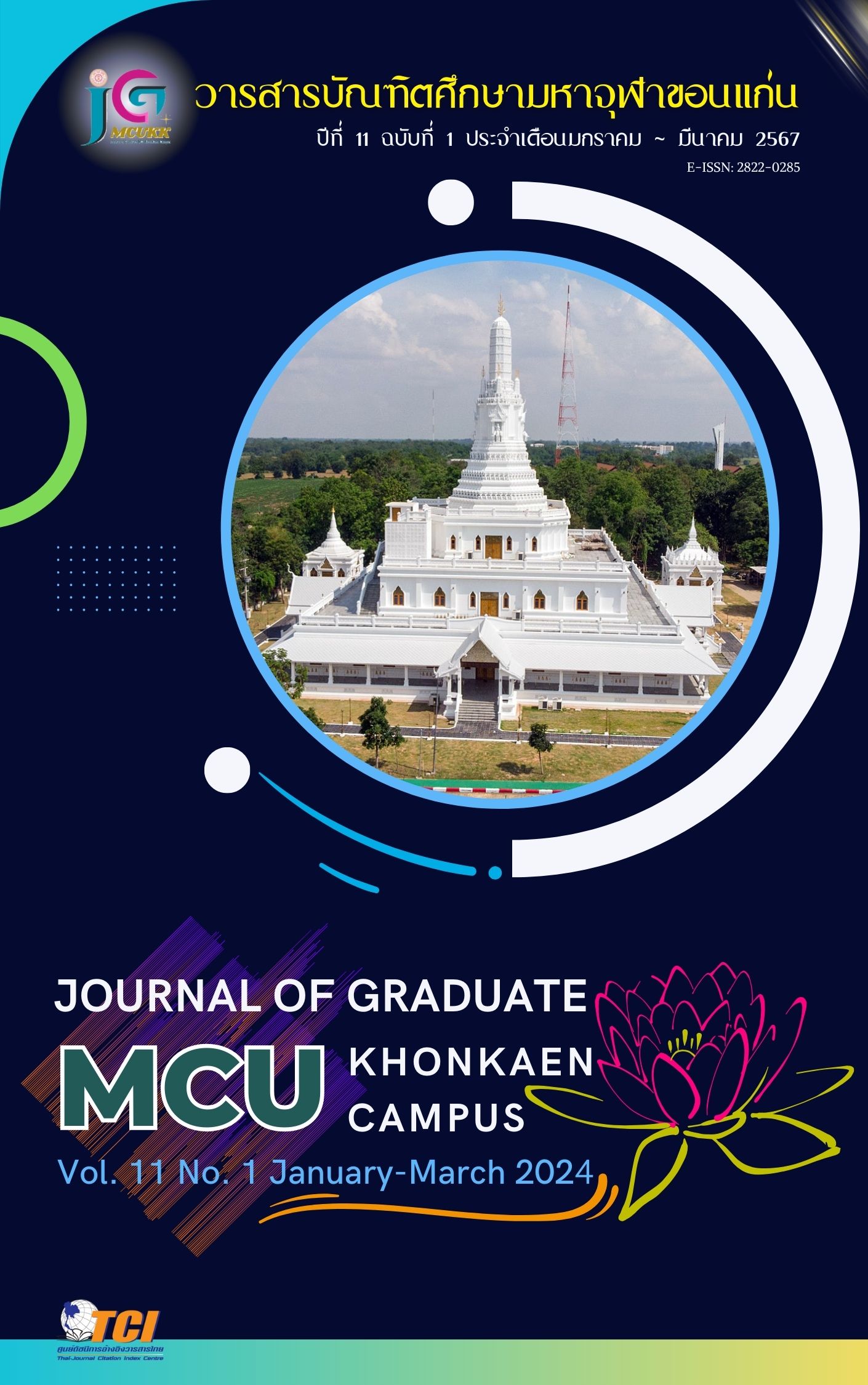Leadership Development From Theory to Excellent Practice
Main Article Content
Abstract
Leadership development is a process that focuses on increasing the knowledge, skills, and attitudes of individuals in leadership roles. To be able to effectively navigate and promote change in organizations or society. Leadership development is very important in every business. level of organization Whether in business, government, or a non-profit organization, this process often focuses on honing skills in managing and leading people. Promoting creativity and building an effective team It also emphasizes the development of personal characteristics such as responsibility confidence Strong leadership, having goals, creating a vision, and having the dynamism to play an appropriate leadership role. Leadership development helps individuals perform their leadership roles effectively. and participate in leading the organization or target group to achieve success with efficiency and sustainability.
Developing excellent leaders is a process that connects theory and practice. Emphasis is placed on developing the skills needed to lead teams and creating good understanding between leaders and teams. To create leaders who can lead the organization towards leadership excellence in the future. And it is considered an important process in creating leaders who are capable and effective in leading teams and organizations. We consider that there are important steps that leaders should take to develop themselves and promote better leadership.
Article Details

This work is licensed under a Creative Commons Attribution-NonCommercial-NoDerivatives 4.0 International License.
References
กวีวงศ์พุฒ. (2542). ภาวะผู้นํา. (พิมพ์ครั้งที่ 5). กรุงเทพฯ: บี.เค.อินเตอร์ปรินท์.
บุญทัน ดอกไธสง. (2553). ขอบข่ายรัฐประศาสนศาสตร์ยุคโลกาภิวัตน์. กรุงเทพฯ: ปัญญาชน.
พนิดา ดามาพงศ์. (2534). การพัฒนาแบบประเมินภาวะผู้นำสุขภาพดีถ้วนหน้าของสาธารณสุขอำเภอ. กรุงเทพฯ: มหาวิทยาลัยมหิดล.
พลอยชมพู ทับเอม, มณีนุช จุ้ยเอี่ยม และ ธนัสถา โรจนตระกูล. (2565). การพัฒนาภาวะผู้นํา : จากทฤษฎีสู่แนวทางการปฏิบัติที่ดีในองค์กร. Journal of Roi Kaensarn Academi, 7(2), 304-319.
พัชรา วาณิชวศิน. (2560). การพัฒนาภาวะผู้นำ : จากทฤษฎีสู่แนวปฏิบัติที่ดีและกรณีศึกษา. กรุงเทพฯ: ปัญญาชน.
วาสนา หน่อย วงษ์สิงห์. (2564). ทฤษฎีภาวะผู้นำการเปลี่ยนแปลง. สืบค้นเมื่อ 8 กันยายน 2566, จาก https://www.gotoknow.org/posts/384595
ศิริพงษ์ ศรีชัยรมย์รัตน์. (2542). กุญแจสู่ความเป็นเลิศทางการบริหารคน. กรุงเทพฯ: ซูม.
สัมฤทธิ์ กางเพ็ง และประยุทธ์ ชูสอน. (2557). ภาวะผู้นำแบบโลกาภิวัตน์แนวคิดและการวิจัย. กรุงเทพฯ: คลังนานา.
เสริมศักดิ์ ศิลาภรณ์. (2544). ภาวะผู้นำ. ประมวลชุดวิชาทฤษฎีและแนวปฏิบัติในการบริหารการศึกษา เล่มที่ 2 หน่วยที่ 5. นนทบุรี: มหาวิทยาลัยสุโขทัยธรรมาธิราช.
Achua and Lussier. (2001). Effective Leadership. (4 th ed.). South-Western : Cengage Learning.
Allen, S. and Hartman, N. (2008). Leadership Development : an Exploration of Sources of Learning. Advanced Management Journal, 73(1), 10-62.
Dessler, Gary. (2004). Management : Principles and Practices for Tomorrow's Leaders. (3rd ed.). Florida : UG/GGS Information Services, 154.

